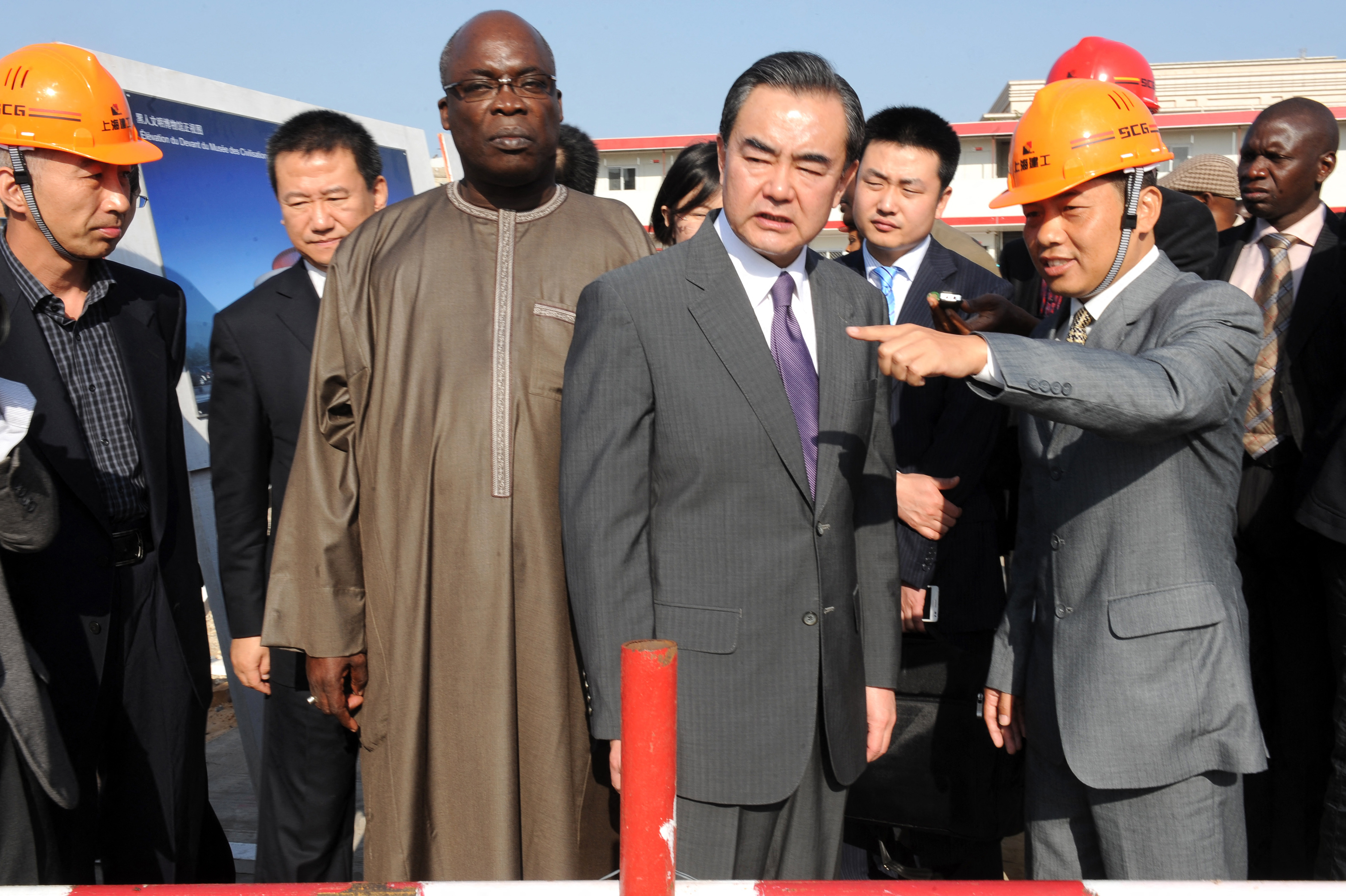
Cultural aid cuts deal blow to Global South creatives – and Swiss diplomacy

Western countries such as Switzerland have slashed foreign aid, including funding for creative programmes. Cultural institutions argue the impact of these cuts will be felt far beyond the art world, and the Global South.
For more than three decades, artists from developing countries have been coming to Switzerland to showcase their work thanks to a programme called the South Culture Fund (SKF).
But come 2028, this will no longer be the case. The Fund – fully financed by the Swiss Development and Cooperation Agency (SDC) since 2010 to the tune of CHF700,000 ($830,000) a year – is set to disappear. The SDC made this decision after parliament voted in late 2024 to cut development aid.
For cultural industry leaders such as iLiana Fokianaki, director of the Kunsthalle art museum in Bern, the news is devastating. “What do you do if you find an amazing artist and you want to bring them over?” she said. “This is where the Fund is pivotal.”
The SKF is one of roughly a dozen Swiss programmes supporting artists from developing countries that are losing their funding from the SDC as a result of the cuts. Others include the Locarno Film Festival’s Open Doors initiative and the Salon Africain du livre, a Geneva book fair for African authors.
Parliamentarians who supported slashing foreign aid argued that a changing geopolitical landscape is pushing Switzerland to find savings in order to increase defence spending. The security of the Swiss population, one member of the right-wing Swiss People’s Party said, came first.
Cultural institutions counter that cuts not only hurt creatives, but also weaken Swiss soft power. Promoting culture, the SDC saidExternal link in a 2020 paper, is “a visible and admired aspect of Switzerland’s presence in the world”.
“Culture is nothing more than international relations-building,” said Rahel Leupin, the director of artlinkExternal link, an independent organisation that promotes international artists in Switzerland and disburses the SKF grants. “Cultural exchange is based on trust and understanding – it’s how we listen to each other and seek dialogue.”
Generating a livelihood for artists
Switzerland’s support for culture abroad dates back decades and is one way it fulfils its obligations under the international convention on cultural diversityExternal link. Before the Covid-19 pandemic, UNESCO reportsExternal link, the country was the world’s ninth-biggest donor in the area of culture and recreation.

More
Our weekly newsletter on geopolitics
Globally, money for culture represents a tiny fraction of total development aid – standing at 0.23% in 2018, or a total of $281 million (CHF238 million), according to the most recent figures from UNESCO. SDC funding for its cultural partners in Switzerland, including the SKF, amounted to CHF3.7 million in 2024 (and just CHF2 million in 2025) out of a total aid budget of CHF2.16 billion last year.
For such small sums, the results are far-reaching, advocates say. International financial support gives artists in developing countries – who face challengesExternal link accessing funding, visas, training and cultural infrastructure – a boost in a global creative industry dominated by developed countries.
“Art must always be presented – nobody makes art just for the studio,” said Leupin. Gaining exposure in Europe helps artists to make a living and build a professional network beyond their homeland, she explained. “Experience shows that many artists who are successful on an international level generate money. They then invest this money in the local scenes where they are living and working.”

The SDC has previously statedExternal link that investing in culture not only helps to create jobs: as a fundamental human right, access to culture also enables democratic participation and social cohesion “in times of increasing authoritarianism”.
“Often, cultural spaces are the only places where there’s still some kind of freedom of expression,” said Leupin. “That’s why it’s so important for these local cultural scenes to develop.”
Benefits for society
Culture can also be a powerful vector for political and social change, said Marcus Desando, director of the Prince Claus Fund, an independent foundation which disburses grants to Global South artists financed by the Dutch government.
In his native South Africa, he said, it was partly thanks to cultural exchanges and artists leaving the country and speaking up that the world grasped the consequences of apartheid. “Without culture we are a lost people,” said Desando. “There’s no humanity without culture.”
Donor states – and those living in them – feel the benefit too. With public funding, cultural venues can afford to bring artists from around the world to Europe. “Swiss taxpayers get culturally diverse programming,” said Leupin. “They see artists and perspectives that otherwise would not be possible for them to see.”
In Bern, the KunsthalleExternal link received a CHF5,000 grant from the SKF to pay travel costs and some of the fee for Ghanaian artist Ibrahim Mahama, who covered the museum building in old jute sacks for his first solo show in Switzerland. Presenting a work of this scale costs between CHF60,000-100,000, said Fokianaki.
Watch as Ibrahim Mahama explains the key messages behind his Kunsthalle installation:
Using sacks that once carried Ghanaian cocoa beans, Mahama says, was a way of encouraging Swiss audiences to pause and consider the fact that West African countries still earn very little from selling their beans to Europe’s lucrative chocolate industry.
China flexes its soft power
Switzerland is not alone in cutting its foreign aid budget – the United States and Germany, the world’s two biggest donor states in 2023, are doing the same, among many others. President Donald Trump is shuttering USAID, historically an important funding source for culture and heritage preservation. Germany cutExternal link its 2024 aid budget and is rumouredExternal link to be preparing more reductions.
Third-place Japan is an outlier, having increased its 2023 aid purse. It has a Cultural Grant Assistance programme whose funding has remained stable over the past decade, the Japanese foreign ministry told SWI swissinfo.ch.
By contrast, NGOs in the Netherlands are bracing for a €2.4 billion (CHF2.25 million) cut to foreign aid from 2027. Money for culture, which accounts for a mere 0.2% of the budget, will disappear by 2029.
Desando calls the decision “short-sighted” and believes, just as advocates for arts funding do in the case of Switzerland, that the cuts will diminish the country’s influence abroad. Letting go of culture as a soft power, the Prince Claus Fund saysExternal link, ultimately hurts donor countries’ national interests.

The retreat comes as authoritarian regimes are flexing their muscles in the soft power sphere. In Africa, the majority of “Chinese cultural investments [are] being embarked on in parallel with development projects”, researcher Avril Joffe noted in a 2023 reportExternal link for the German Institute for Foreign Relations. The Museum of Black Civilisations in Senegal, for example, was designed by Chinese architects and its construction made possible by a $34 million Chinese contribution.
While African governments have been “overwhelmingly positive” about such investments, Joffe writes, some civil society groups fear both the “erosion of local cultures, as Chinese influence spreads” and growing dependence on Chinese media. The country has been expanding its ownership of media outlets on the African continent. The Chinese media group StarTimes, for example, says it has up to 11 million television subscribers in Nigeria and is the leading digital television operator in Ghana.
Western states, meanwhile, are scaling back funding for international news services such as Voice of America and the BBC World Service.

More
How Switzerland is managing foreign aid at a time of global upheaval
According to the Swiss government, culture remains “an integral part of development cooperation” for SDC offices abroad, the foreign ministry told SWI swissinfo.ch. These offices can still spend up to 1% of their allocated aid budget on local cultural projects. As for Swiss institutions working with Global South artists, it said they can access funding from municipalities, cantons and the Federal Office of Culture.
Leupin said that artlink already receives contributions from these sources, but these are project-specific and the amounts “comparatively small”: a project that costs CHF200,000, for instance, will have eight to ten contributors. As for the South Culture Fund, she said, no comparable scheme supporting international artists currently exists in the Alpine nation.
For Fokianaki, the decision to cut federal funding brings to mind the Covid-19 lockdown and what it meant to go for months without cultural events. “It was such a poor life with no music, no concerts – nothing,” she said. “I hope the people who made this decision will reconsider it.”
Edited by Lindsey Johnstone/ts. With additional reporting by Tomoko Muth.
More

In compliance with the JTI standards
More: SWI swissinfo.ch certified by the Journalism Trust Initiative































You can find an overview of ongoing debates with our journalists here . Please join us!
If you want to start a conversation about a topic raised in this article or want to report factual errors, email us at english@swissinfo.ch.